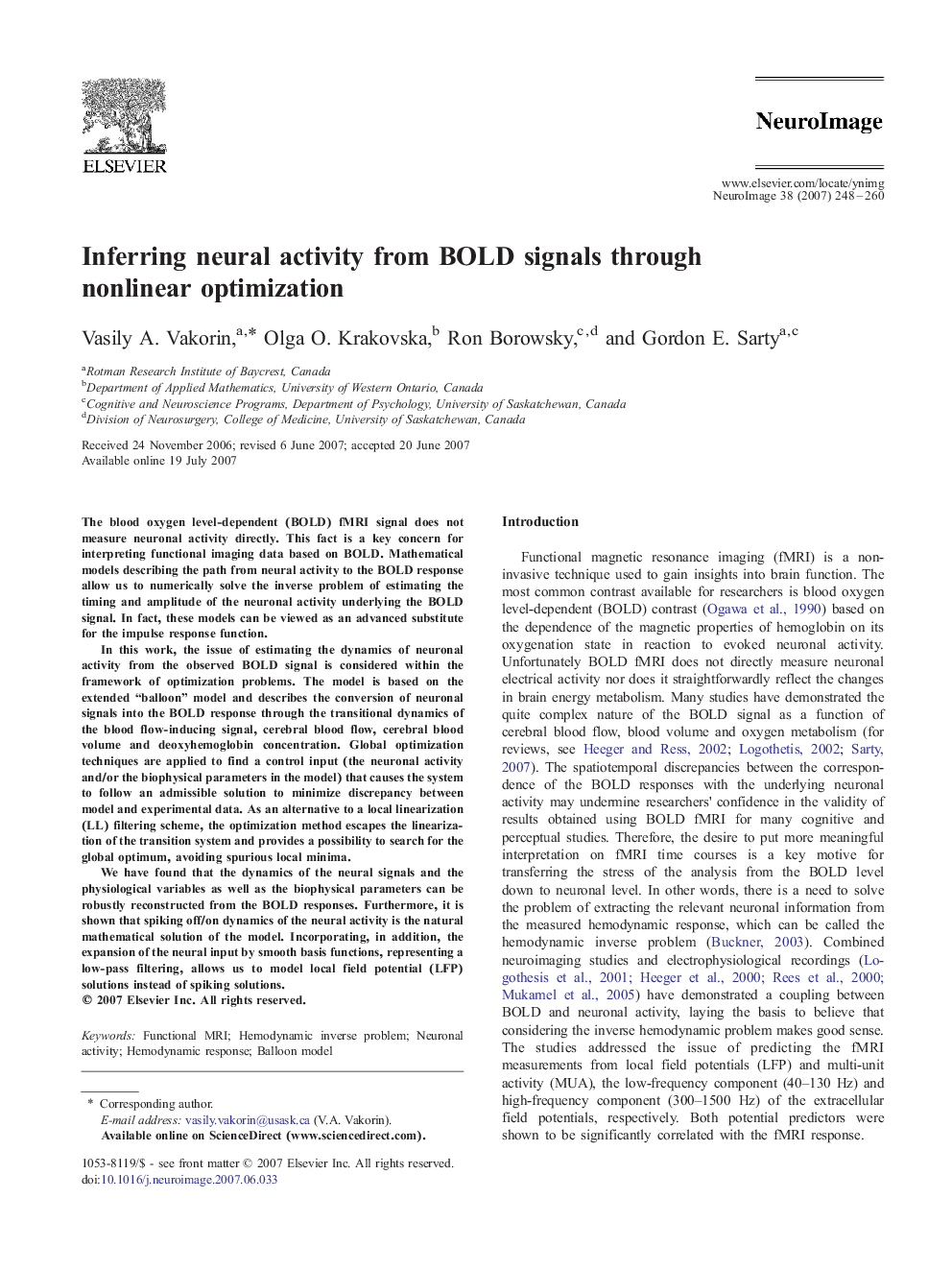| Article ID | Journal | Published Year | Pages | File Type |
|---|---|---|---|---|
| 3073295 | NeuroImage | 2007 | 13 Pages |
The blood oxygen level-dependent (BOLD) fMRI signal does not measure neuronal activity directly. This fact is a key concern for interpreting functional imaging data based on BOLD. Mathematical models describing the path from neural activity to the BOLD response allow us to numerically solve the inverse problem of estimating the timing and amplitude of the neuronal activity underlying the BOLD signal. In fact, these models can be viewed as an advanced substitute for the impulse response function.In this work, the issue of estimating the dynamics of neuronal activity from the observed BOLD signal is considered within the framework of optimization problems. The model is based on the extended “balloon” model and describes the conversion of neuronal signals into the BOLD response through the transitional dynamics of the blood flow-inducing signal, cerebral blood flow, cerebral blood volume and deoxyhemoglobin concentration. Global optimization techniques are applied to find a control input (the neuronal activity and/or the biophysical parameters in the model) that causes the system to follow an admissible solution to minimize discrepancy between model and experimental data. As an alternative to a local linearization (LL) filtering scheme, the optimization method escapes the linearization of the transition system and provides a possibility to search for the global optimum, avoiding spurious local minima.We have found that the dynamics of the neural signals and the physiological variables as well as the biophysical parameters can be robustly reconstructed from the BOLD responses. Furthermore, it is shown that spiking off/on dynamics of the neural activity is the natural mathematical solution of the model. Incorporating, in addition, the expansion of the neural input by smooth basis functions, representing a low-pass filtering, allows us to model local field potential (LFP) solutions instead of spiking solutions.
